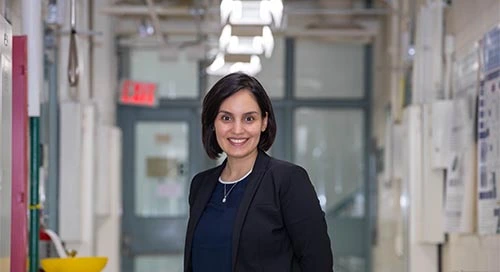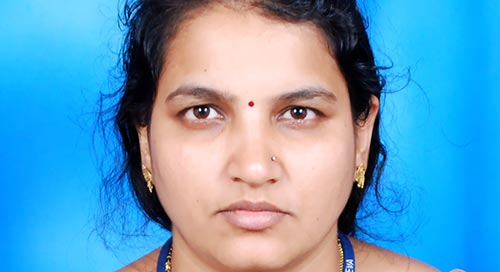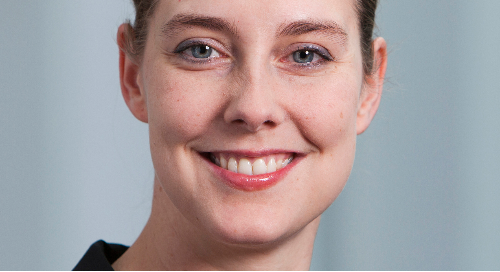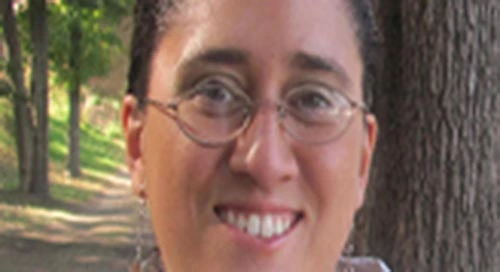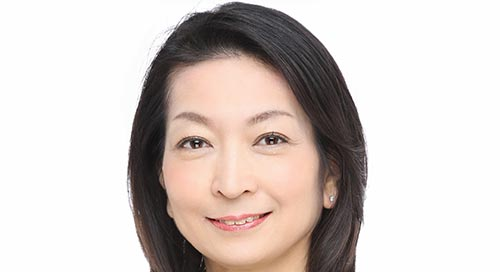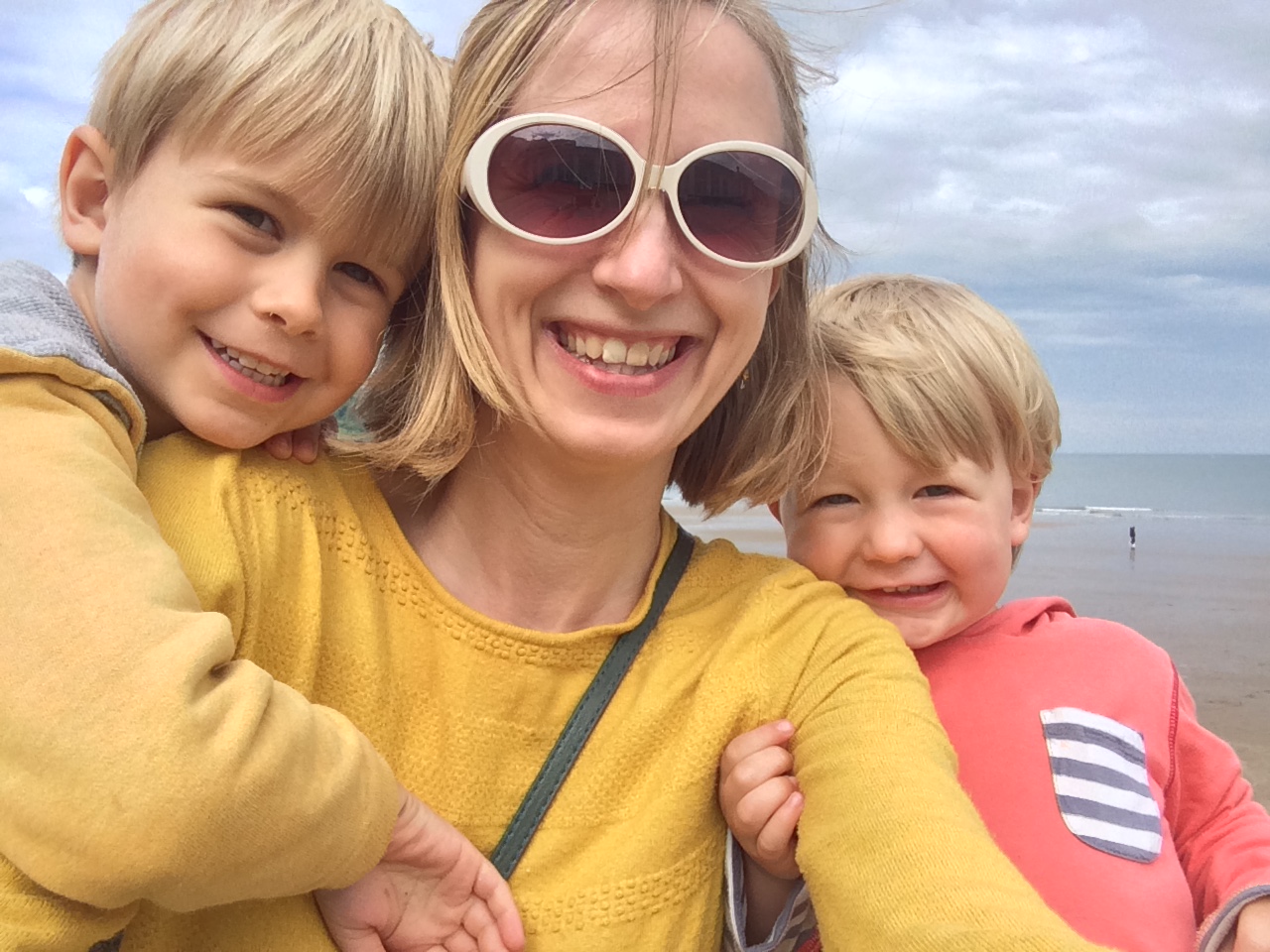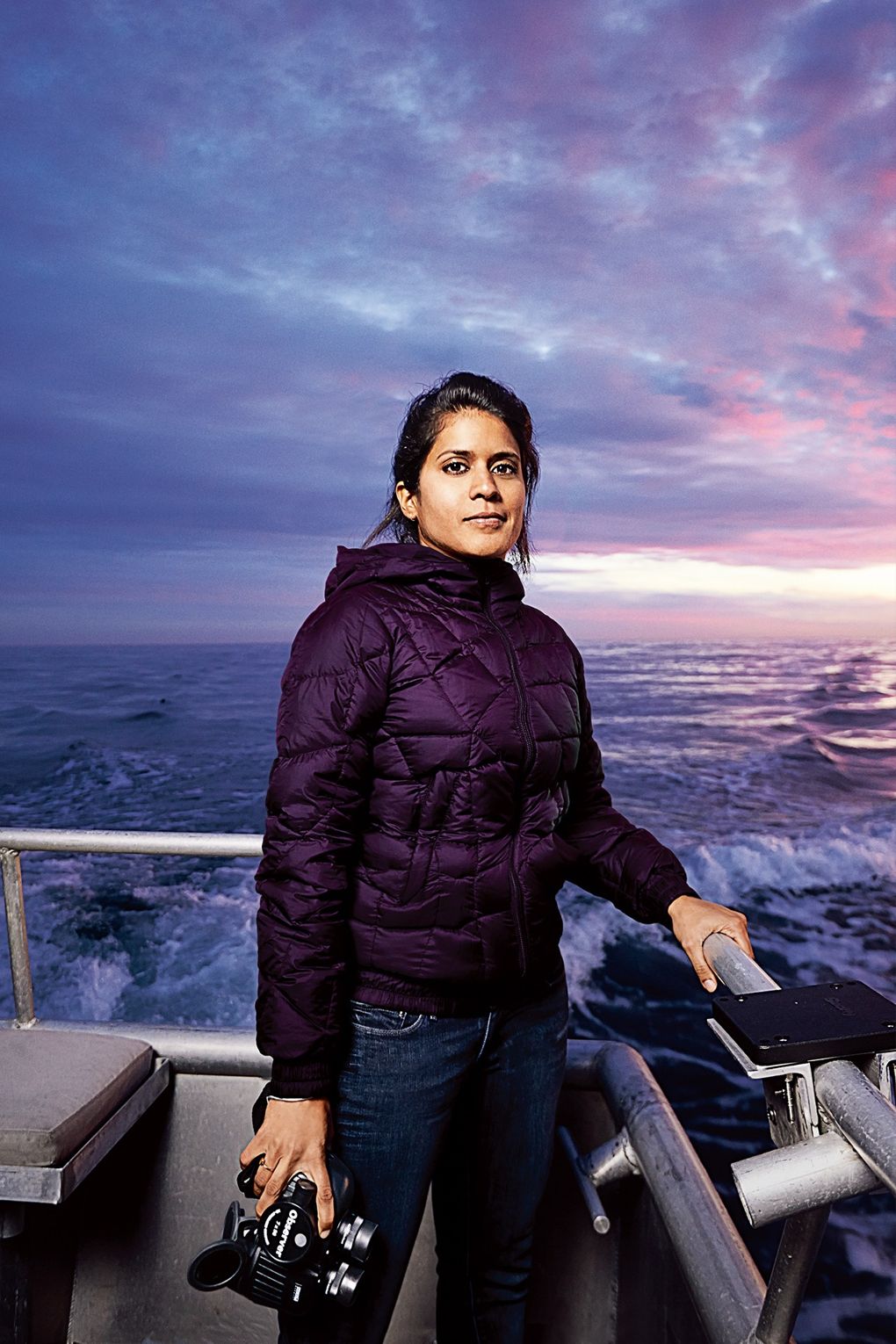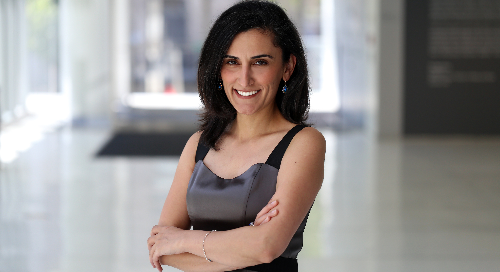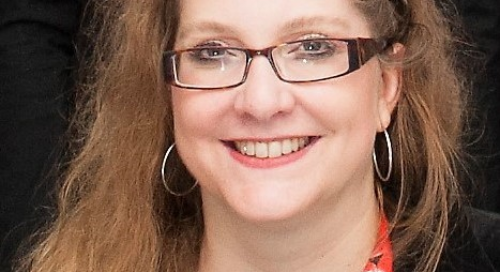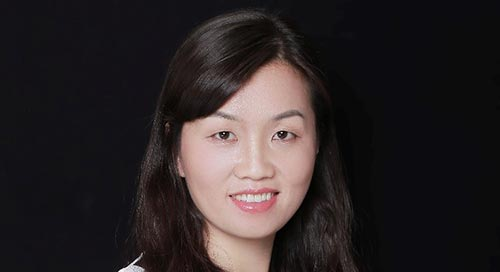meet-disabilities-researcher-and-inspiring-mind-rashmi-becker
October 31, 2019
In Series 1 of Inspiring Minds, we met Rashmi Becker.
Rashmi Becker is researching the role of the support worker in meeting the aspirations of learning disability policy. As guardian to her older brother, who has autism, a learning disability and visual impairment, she has very personal reasons to see her research make a real difference. Rashmi is also passionate about dance and founded Step Change Studios, the award-winning, pioneering dance company committed to making dance accessible for everyone.
We asked Rashmi Becker a few behind the scenes questions about her film.
Q. Could you give us a quick reminder about your current research and career?
A. My research is focused on exploring the role of the support worker in meeting the aspirations of learning disability policy. I spent a number of years working in central government, and then health and social care and was struck by the critical role support workers play in the lives of people they support, and yet the absence of their voice in government decisions concerning the support of people with a learning disability. I am also guardian to my brother who has a learning disability and autism, so I wear a number of hats spanning the personal & professional. I think this mix of experience enriches what I can bring to the academic research field.
In parallel, I have always been passionate about sport and especially dance and have danced from a young age. I sit on the Board of Sport England, and am an active advocate of the benefits of physical activity on quality of life. I support people with and without disabilities to participate in dance - from the community to the professional level. This is highly rewarding work and provides a creative and physical balance to the mental and emotional challenges involved in my policy and research work and in supporting my brother.
Q. What made you want to share your story with us?
A. Wiley found me! Initially I was apprehensive. I am protective of my brother and was nervous about how authentically my experience would be represented. However, as a keen advocate, I recognize the value in sharing my story with the hope of engaging audiences in areas that affect us all: we all come into contact with health and social care at different points in our lives and have a stake in a system that prioritizes quality and compassion.
Q. What’s one thing you’d like people to do after hearing your story?
A. Wearing those different hats: on a personal level, my hope is to contribute towards empowering the public to demand quality of care and support for people with disabilities, rather than feeling they must accept what is offered. And for professional audiences - policymakers, commissioners, care providers, to improve recognition of the role that support workers play in the quality of lives of the people they support and that if the system fails frontline support workers, it fails the people they are supporting.
Q. Could you tell us about your experience filming with us?
A. What I was pleasantly surprised by was the collaborative approach to making this film. There was a genuine interest in my work and life and the team really took their time to capture my story while remaining sensitive to the subject and people it would impact. We had lots of conversations off-camera which allowed me to give a more detailed context that then informed the narrative.
Q. What were your first impressions of the film?
A. When I saw the edit of the film I felt emotional and proud at the same time. My research is hard work and challenging and this film is a timely reminder of why I keep going and keep trying.
Thanks Rashmi!
Feeling inspired?
Bright minds build bright futures and your research can contribute. Let us make your publishing experience easy and rewarding. Simply register with Author Resources


